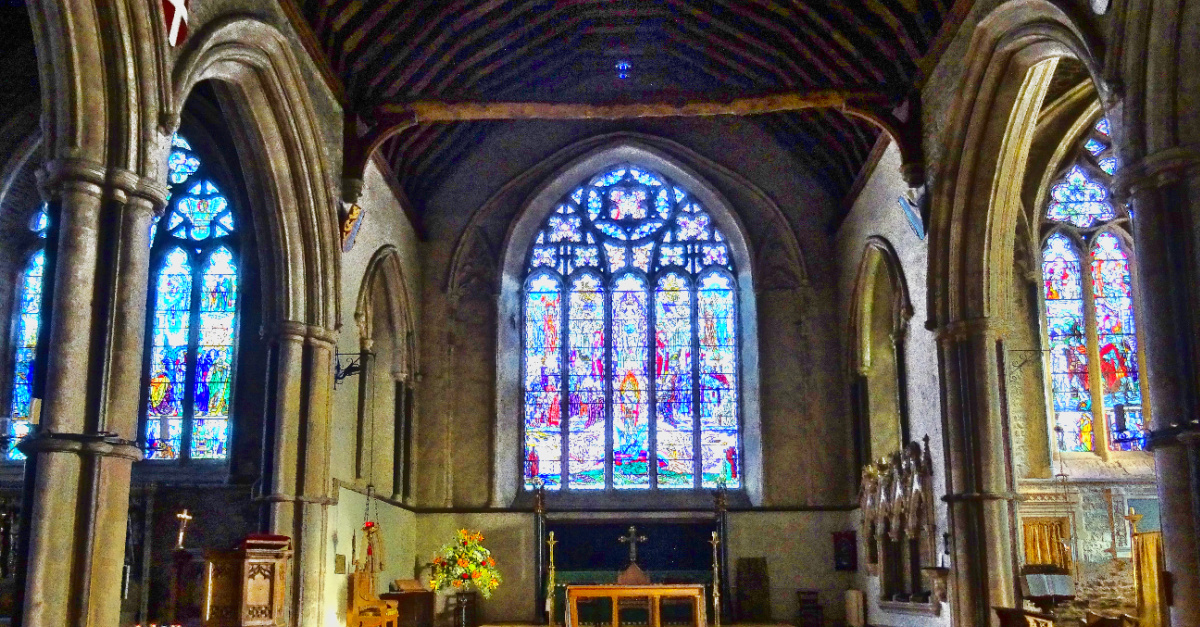
A pair of judges in the United Kingdom allege Muslim individuals have faked a conversion to Christianity and have duped Church of England clergy in order to claim asylum and remain in the country.
The allegations have led to a debate within the government, the media and the church itself over whether clergy should do more to probe individuals when they claim they have converted from one religion to another. In the U.K., a person who converts from Islam to Christian can file for asylum if they would face persecution in their home country due to their new faith.
The controversy has sparked concern from Christian leaders that it could harm the asylum claims of individuals whose conversion is legitimate.
“Christian converts in some countries are among the most persecuted minorities in the world,” former archbishop of Canterbury George Carey wrote in a column for The Telegraph. “Genuine converts in countries where a considerable risk is taken by ‘apostasising’ find themselves undermined by a handful of false cases where people are gaming the system.”
Justin Welby, the current archbishop of Canterbury, said the church has done nothing wrong.
The judges allege clergy have accepted the asylum claims too easily. In one case, a judge found that a “church leader had been tricked by an Iranian migrant who was unable to even name the church,” Premier Christian News reported. The migrant said communication was limited to “greetings and asking how we are… [with] broken English and hand signals.”
In another case, a judge said a “vicar had taken an asylum seeker ‘uncritically at face value’ and had not considered alternative motivations for joining the church,” Premier Christian News said.
Suella Braverman, a former member of Parliament and a former Home Secretary in the government, alleged in a column for The Telegraph that some individuals in migrant communities are “gaming the system.”
“Upon arrival in the UK, migrants are directed to these churches as a one-stop shop to bolster their asylum case,” Braverman wrote. “Attend Mass once a week for a few months, befriend the vicar, get your baptism date in the diary and, bingo, you’ll be signed off by a member of the clergy that you’re now a God-fearing Christian who will face certain persecution if removed to your Islamic country of origin. It has to stop. We must get wise to the problem. It is no wonder that the former dean of Liverpool Cathedral noted that he converted about 200 asylum seekers to Christianity over a four-year period — but he doesn’t recall baptizing any Muslim who was already a British citizen.”
Welby, in a Feb. 7 statement, said the role of clergy has been mischaracterized.
“Churches up and down the country are involved in caring for vulnerable people from all backgrounds,” Welby said. “For refugees and those seeking asylum, we simply follow the teaching of the Bible which is to care for the stranger. It is the job of the Government to protect our borders and of the courts to judge asylum cases. The Church is called to love mercy and do justice. I encourage everyone to avoid irresponsible and inaccurate comments — and let us not forget that at the heart of this conversation are vulnerable people whose lives are precious in the sight of God.”
Carey, the former archbishop of Canterbury, both defended and criticized the church. He said it is the “Home Office and the judiciary’s job to apply the asylum rules — not the Church.” Then again, he noted, the Church of England’s guidance “gives information to clergy on how to ‘mount a personal campaign’ if an application is refused.”
“It does not give much advice on how to discern whether these conversions are authentic, long-standing and life-changing,” Carey wrote. “While it is true that most clergy are experienced enough to deal with these sorts of pastoral situations, the Church should do more to insist that baptism preparation is rigorous.”
The United Kingdom, Carey asserted, must get control of its broken immigration system. The U.K. population, he said, is growing at such a rapid pace that the poor are suffering.
“My concern and attention is… for those affected by a severe lack of housing and services, a situation which is reaching breaking point in poorer areas,” he wrote. “The elites are well-protected, but Britain’s poorest have a different experience. An experiment in mass immigration has been foisted upon them without their consent, changing their lives and their communities.”
Image credit: ©Getty Images/Patricia Hamilton
Michael Foust has covered the intersection of faith and news for 20 years. His stories have appeared in Baptist Press, Christianity Today, The Christian Post, the Leaf-Chronicle, the Toronto Star and the Knoxville News-Sentinel.




























![[Video] More – Aghogho » GospelHotspot](https://gospelhotspot.net/wp-content/uploads/2024/04/More-Aghogho.jpeg)















